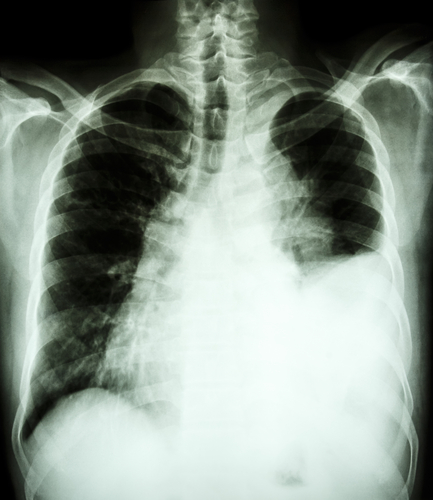 COPD usually manifests with very non-specific symptoms for which not many people seek medical attention. It is only with progressive worsening of the condition, when a physician investigates the medical history of a patient with a retroactive questionnaire, that the course of the disease can be traced.
COPD usually manifests with very non-specific symptoms for which not many people seek medical attention. It is only with progressive worsening of the condition, when a physician investigates the medical history of a patient with a retroactive questionnaire, that the course of the disease can be traced.
A combination of COPD symptoms for emphysema, chronic bronchitis and reactive airway disease includes coughing, progressive worsening dyspnea, exercise intolerance, a feeling of fatigue with routine activities, sputum production with various consistencies, and altered mental health.
Productive cough is also frequently observed, often heavy in the mornings, with sputum production, which is colorless in the beginning but turns yellowish green over time, indicative of bacterial infection.
Breathlessness, though probably the most significant symptom, occurs at a very later stage, when the FEV falls below 50% of the expected value. The FEV is a surer test for COPD detection, but not an indicator for mortality.
Wheezing is common during exertion and exacerbations.
In 2011, the American College of Physicians/American College of Chest Physicians/American Thoracic Society/European Respiratory Society (ACP/ACCP/ATS/ERS) published a set of guidelines that can help in tracking COPD and respiratory obstruction. These include:
- Self-reported smoking history of 55 pack-years or more (a pack-year is a term used to measure how much a person has smoked over the years. One pack-year refers to smoking one pack of cigarettes daily for a year).
- Presence of wheezing sounds on inspection with a stethoscope (auscultation).
- Self-reported wheezing.
In cases where these symptoms are absent, the possibility of airway obstruction is ruled out.
Some other systemic manifestations of COPD include decreased fat-free mass, impaired systemic muscle function, osteoporosis, cognitive impairment, pulmonary hypertension, and left heart-failure.
Symptoms In Chronic Bronchitis & Emphysema:
It is important to distinguish between the symptoms of chronic bronchitis and emphysema.
Chronic bronchitis is marked by productive cough (for 3 months or more) with progression towards dyspnea, frequent pulmonary infections, progressive cardiac and respiratory failure, edema and weight gain.
Emphysema is marked by a long history of progressive dyspnea, late onset of non-productive cough with the occasional production of mucoid sputum, and eventual cachexia (loss of appetite and simultaneous weight loss, fatigue and weakness) and respiratory failure.
